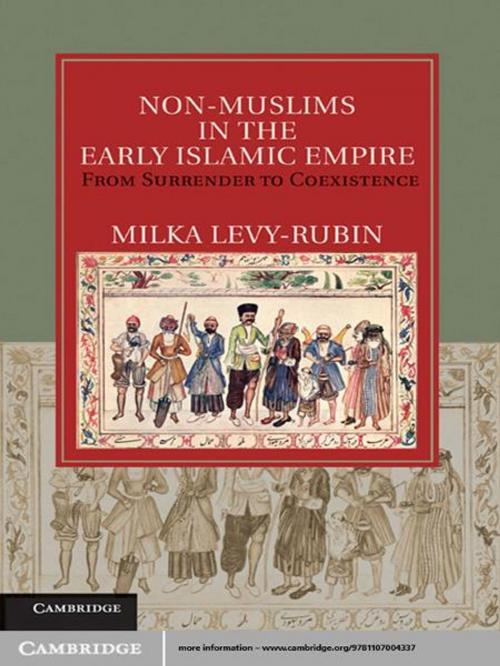Non-Muslims in the Early Islamic Empire
From Surrender to Coexistence
Nonfiction, History, Middle East, Religion & Spirituality| Author: | Milka Levy-Rubin | ISBN: | 9781139209601 |
| Publisher: | Cambridge University Press | Publication: | September 30, 2011 |
| Imprint: | Cambridge University Press | Language: | English |
| Author: | Milka Levy-Rubin |
| ISBN: | 9781139209601 |
| Publisher: | Cambridge University Press |
| Publication: | September 30, 2011 |
| Imprint: | Cambridge University Press |
| Language: | English |
The Muslim conquest of the East in the seventh century entailed the subjugation of Christians, Jews, Zoroastrians and others. Although much has been written about the status of non-Muslims in the Islamic empire, no previous works have examined how the rules applying to minorities were formulated. Milka Levy-Rubin's remarkable book traces the emergence of these regulations from the first surrender agreements in the immediate aftermath of conquest to the formation of the canonic document called the Pact of 'Umar, which was formalized under the early 'Abbasids, in the first half of the ninth century. The study reveals that the conquered peoples themselves played a major role in the creation of these policies and that they were based on long-standing traditions, customs and institutions from earlier pre-Islamic cultures that originated in the worlds of both the conquerors and the conquered. In its connections to Roman, Byzantine and Sasanian traditions, the book will appeal to historians of Europe as well as Arabia and Persia.
The Muslim conquest of the East in the seventh century entailed the subjugation of Christians, Jews, Zoroastrians and others. Although much has been written about the status of non-Muslims in the Islamic empire, no previous works have examined how the rules applying to minorities were formulated. Milka Levy-Rubin's remarkable book traces the emergence of these regulations from the first surrender agreements in the immediate aftermath of conquest to the formation of the canonic document called the Pact of 'Umar, which was formalized under the early 'Abbasids, in the first half of the ninth century. The study reveals that the conquered peoples themselves played a major role in the creation of these policies and that they were based on long-standing traditions, customs and institutions from earlier pre-Islamic cultures that originated in the worlds of both the conquerors and the conquered. In its connections to Roman, Byzantine and Sasanian traditions, the book will appeal to historians of Europe as well as Arabia and Persia.















